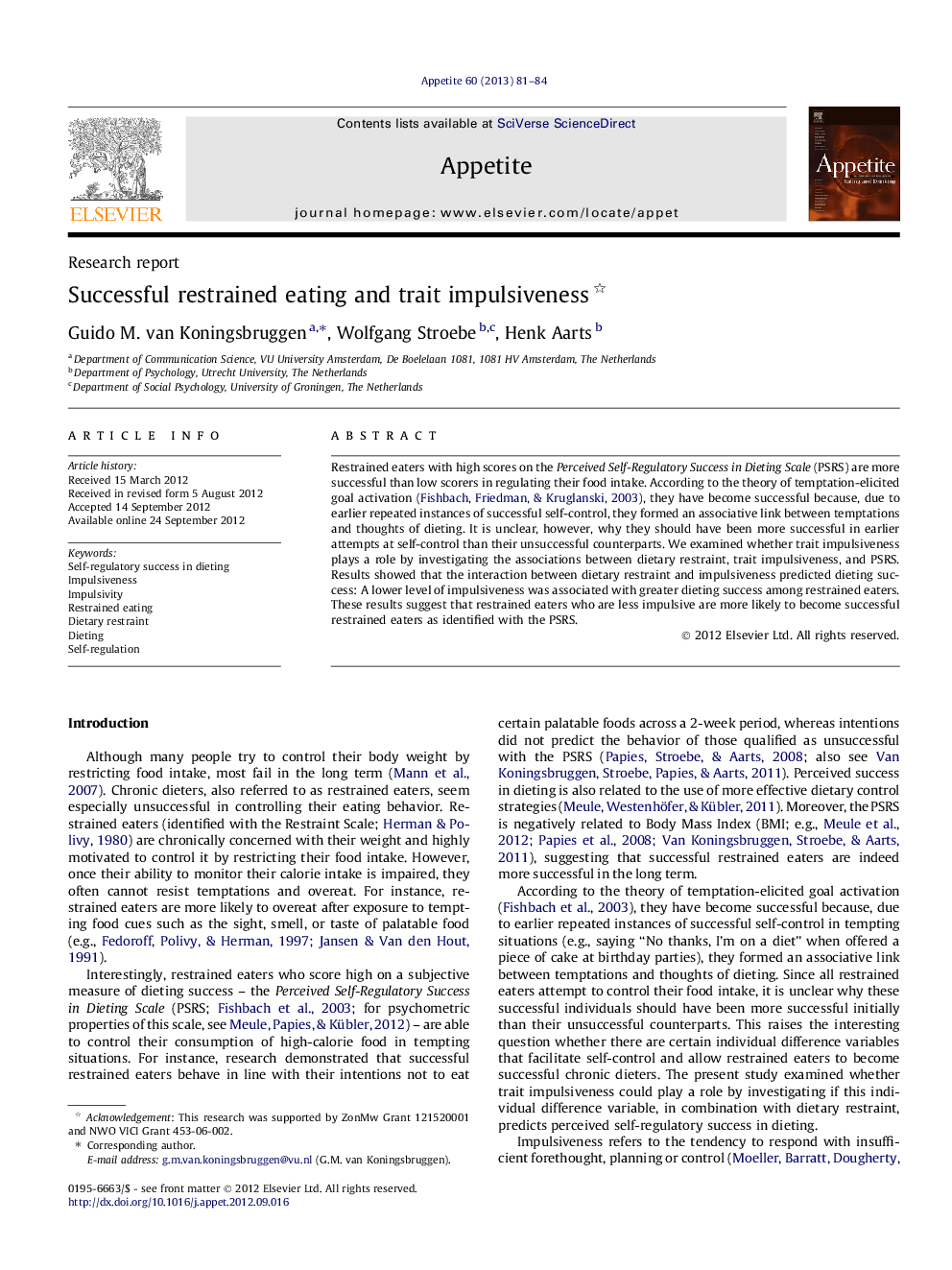| Article ID | Journal | Published Year | Pages | File Type |
|---|---|---|---|---|
| 939767 | Appetite | 2013 | 4 Pages |
Restrained eaters with high scores on the Perceived Self-Regulatory Success in Dieting Scale (PSRS) are more successful than low scorers in regulating their food intake. According to the theory of temptation-elicited goal activation ( Fishbach, Friedman, & Kruglanski, 2003), they have become successful because, due to earlier repeated instances of successful self-control, they formed an associative link between temptations and thoughts of dieting. It is unclear, however, why they should have been more successful in earlier attempts at self-control than their unsuccessful counterparts. We examined whether trait impulsiveness plays a role by investigating the associations between dietary restraint, trait impulsiveness, and PSRS. Results showed that the interaction between dietary restraint and impulsiveness predicted dieting success: A lower level of impulsiveness was associated with greater dieting success among restrained eaters. These results suggest that restrained eaters who are less impulsive are more likely to become successful restrained eaters as identified with the PSRS.
► Successful restrained eaters can be identified with the Perceived Self-Regulatory Success in Dieting Scale (PSRS). ► It is believed that they have become successful due to earlier repeated instances of successful self-control. ► But why have they been more successful in earlier attempts at self-control? ► Lower trait impulsiveness was associated with greater dieting success among restrained eaters. ► Restrained eaters who are less impulsive may thus become successful restrained eaters as identified with the PSRS.
